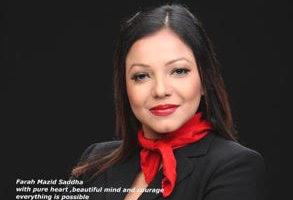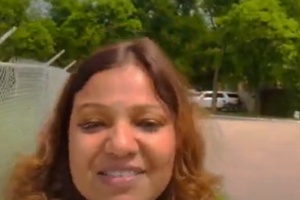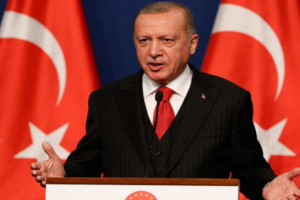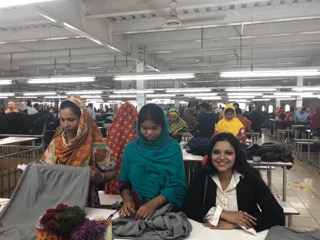The rabbi had just finished comforting a congregant as she prepared to say the traditional prayer for the dead in honour of her mother when a loud crack rang out in his synagogue.
It was about halfway through the Sabbath service on Saturday when a gunman turned what was supposed to be a time of solace into a day of horror. The rabbi, Yisroel Goldstein, turned quickly to see the body of the woman, Lori Gilbert Kaye, 60, slumped on the floor. He began to rush toward her when he caught sight of several small children watching as the gunman unleashed the attack on Chabad of Poway.
“My instinct was to go to her, but I turned toward a doorway and these little kids were there, so scared,” he said. By then, Goldstein had been shot in both hands. “I just grabbed them with my bloody fingers. They were screaming and I was shouting.”
As Goldstein ran out with the children, Kaye’s husband, a physician, ran in to help. But the second he recognised it was his wife on the ground, he fainted. Their only daughter stood a few feet away sobbing in shock, Goldstein said.
“It was horrific, utter horror,” Goldstein said. “It was like images out of the Holocaust.”
It was only a few months ago, after another hate-fuelled attack on a synagogue in Pittsburgh that Goldstein completed training for a situation just like this. But it seemed impossible to imagine it would ever happen to his own congregation, he said.
Now Goldstein and leaders like him in synagogues and other houses of worship are confronting their new reality. Just like school principals across the country, religious leaders now must take measures to prepare for the horrors of mass shootings. As recent attacks have shown, prayer services are increasingly vulnerable.
The shooting in Poway, about 25 miles north of San Diego, coincides with a significant spike in hate crimes, including acts of anti-Semitism. The gunman, whom police identified as John Earnest, 19, wrote a manifesto echoing the same kind of white supremacist views as the shooters in the attacks in the synagogue in Pittsburgh and on mosques in Christchurch, New Zealand. The latest attack came one week after mass bombings at churches and hotels in Sri Lanka left hundreds dead.
On Sunday, Earnest was booked on one charge of murder — Kaye was killed in the attack — and three charges of attempted murder.
Jewish institutions have invested much more significantly in security in the past few years, using private armed security guards, cameras, volunteer patrols and other measures, said Jerry Silverman, president of the Jewish Federations of North America.
“There’s been a lot to take in already and yesterday took the Defcon to a whole other level,” he said. “It all has definitely put the Jewish community on alert.”
As hate-filled screeds spewing white nationalist conspiracy theories have ricocheted around the internet, hate crimes have increased in the past few years, according to the FBI. And all over the country and the world, houses of worship have tightened security in response to terrorist attacks.
African-American churches have long had to consider the probability of security threats, but recent events are showing many white congregations that their past sense of safety is false, said Rev Ronell Howard, pastor of Christ United Methodist Church of Piscataway, New Jersey.
“When I tell my Caucasian colleagues, black churches have always had security as long as I can remember, they are always flabbergasted,” Howard, 50, said.
Ultimately the increasing violence is less about religion than about fomenting fear and keeping people in a heightened sense of vulnerability, she said. People of faith need to reiterate one message, she said: “We were not given from God this spirit of fear, but of love and of courage.”
Goldstein said that his congregation had never hired armed security guards, only because it could not afford to do so, and that the government should step in to pay for such security.
“This may have been prevented if we had that,” Goldstein said. “The United States government should recognise the severity and that this is a new reality, this is the new norm, sadly. If I had the funding, we may have been spared. How many more dead bodies will we have to see before we act?”
In 2017, the Jewish Federation of Greater Pittsburgh hired Brad Orsini, a retired FBI agent, as a “community security director.” He immediately began training the staff and members of Jewish organisations all over the region. He had conducted more than 100 training sessions before last October, when 11 worshippers were shot and killed at the Tree of Life synagogue.
“It’s very sad, isn’t it? We have to train congregants to be safe so they can pray,” Orsini said on Sunday on the way back from a training session at a Pittsburgh synagogue, which had been attended by more than 200 people.
The protocol he teaches has not changed — how to be aware of signs of hate in your area, how to evacuate, where to hide if evacuation is not possible, how to fight if there are no hiding places and, ultimately, how to treat the wounded.
What has changed, he said, is the interest.
“We now have 100% buy-in,” he said, which goes beyond the Jewish community, with requests coming in from organisations of different faiths for him to come in and discuss a plan for security.
At the Islamic Centre of Fredericksburg, Virginia, parents have started to take turns sitting in their cars in the parking lot to keep watch after dropping their kids off for Sunday school.
Sara Shanab, 23, whose family goes to the mosque, said she feels more anxiety as the presidential election season draws near. Her community has experienced harassment before, but fear was heightened after the shootings in New Zealand last month, when a gunman killed 50 people at two mosques.
“The community comes together under times of chaos and stress,” she said. “I do feel a sense of safety in that.”
Russell Moore, president of the Ethics and Religious Liberty Commission of the Southern Baptist Convention, said active shooter drills had become more common for church staff and security teams. His church in Nashville, Tennessee, on Sunday morning included a lament for how many shootings and acts of violence in places of worship there have been in recent months.
“Every religious group feels vulnerable right now as the violence feels unpredictable and chaotic,” he said. “We can disagree about all sorts of important things, even ultimate things, but surely every person ought to agree that no one should be gunned down in worship.”
The sense of fear and need for increased security is being felt well beyond the United States.
The Sri Lankan government has said the church bombings may have been in retaliation for the mosque shootings in New Zealand. And the day after the Christchurch terror attack, Shabbat services at synagogues across the country were cancelled on the advice of the police. While New Zealand police are no longer providing round-the-clock armed guard at mosques, as they did immediately after the shooting, the mosques that were attacked still have protection.
Barry Werber, who survived the Tree of Life shooting, said he could hardly believe that any service would meet without security. As sad as it makes him, meeting without armed security, is now simply short-sighted, he said.
“I had family in the concentration camps; they came over to escape that,” said Werber, 77, whose parents immigrated to the United States from Poland. “Now it’s raising its head all over again.”
Since the October attack, two of the congregations that had met at Tree of Life have been meeting in chapels at a synagogue nearby — and armed security guards now greet people at the doors.
“How do you not provide that?” asked Aaron Bisno, the rabbi of the host synagogue. This heightened security protocol does comes with a steep price. Two security guards for 13 hours costs more than $1,000 a day, Bisno said, a cost prohibitive for many congregations, especially smaller ones. That is particularly demanding these days, when memberships at churches and synagogues nationwide are dwindling in numbers and resources.
Since the Pittsburgh attack in October, the Jewish Community Relations Council of New York has conducted more than 200 security assessments of synagogues by request and has received inquiries from additional synagogues since Saturday.
Dozens of synagogues in the city employ armed security guards, while others that cannot afford to hire armed security have created plans involving blockading attackers from entering synagogue doors and strategies for evacuation in case of an active shooter, according to David Pollock, director of public policy and security at the council.
“Nationally our law enforcement agencies need to step up and acknowledge that our houses of worship are being preyed upon,” said Eric L Adams, Brooklyn borough president and a retired captain of the New York Police Department. “Now that we have this new level of clear targeting of houses of worship we have to step outside our box and reshape how we think proactively about security.”
On Sunday morning, Goldstein thought of the children who witnessed the attack, including his granddaughter. “She doesn’t deserve that. Our people, we’ve been through hell and back. I need our Jewish brethren to stand strong and really be proud of our heritage.”





















